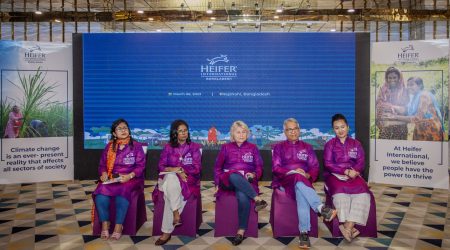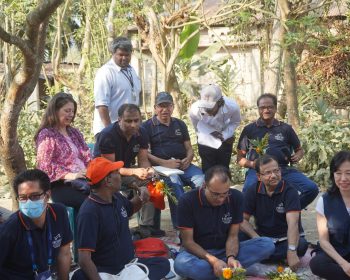Heifer International: Empowering Women Smallholder Farmers in Bangladesh
Green Ink. supported Heifer International to conduct “Asia Strategy on Locally Led Development and Caring for the Earth” at Rajshahi from March 4-10, 2023.
The event included participation from the president, senior vice president, and esteemed country directors of Heifer International. Surita Sandosham, president and chief executive officer of Heifer International, reaffirmed Heifer International’s commitment to enhancing smallholder women farmers’ output, influence over household decisions, and income. During her visit, Sandosham talked with farmer-producer groups and women farmers backed by Heifer who are trying to improve food security and revamp the local agricultural industry.

After visiting Rajshahi’s rural area, Sandosham stated, “Women farmers face significant obstacles to accessing the tools, inputs, and markets necessary to achieve socio economic empowerment and earn a sustainable income.” “For this reason, Heifer International is totally devoted to helping Bangladeshi women farmers use agriculture to create successful livelihoods. Without their complete economic empowerment, our attempt to eradicate world hunger and poverty will be impossible.
Heifer International began work in Bangladesh in 2006, implementing projects with the government and local NGO partners. Heifer Bangladesh has helped more than 39,750 agricultural families so far increase their output along the value chains for beef, dairy, and goat products. Heifer offers training for female farmers with a focus on climate-smart agricultural methods, such as the adoption of seeds resistant to drought and integrated pest management, to lessen their vulnerability to climate change.

“Women farmers are key to agricultural economics and sustainable development in Bangladesh,” said Senior Vice President of Asia Programs Mahendra Lohani, amid an internal Asia Strategy conference on locally-led development, held during the CEO’s visit. “Heifer will continue to work closely with small-scale women farmers to better understand their unique challenges and implement strategic agroecological practices. Our goal is to support women farmers so they can help themselves, their families, the environment and each other.”
